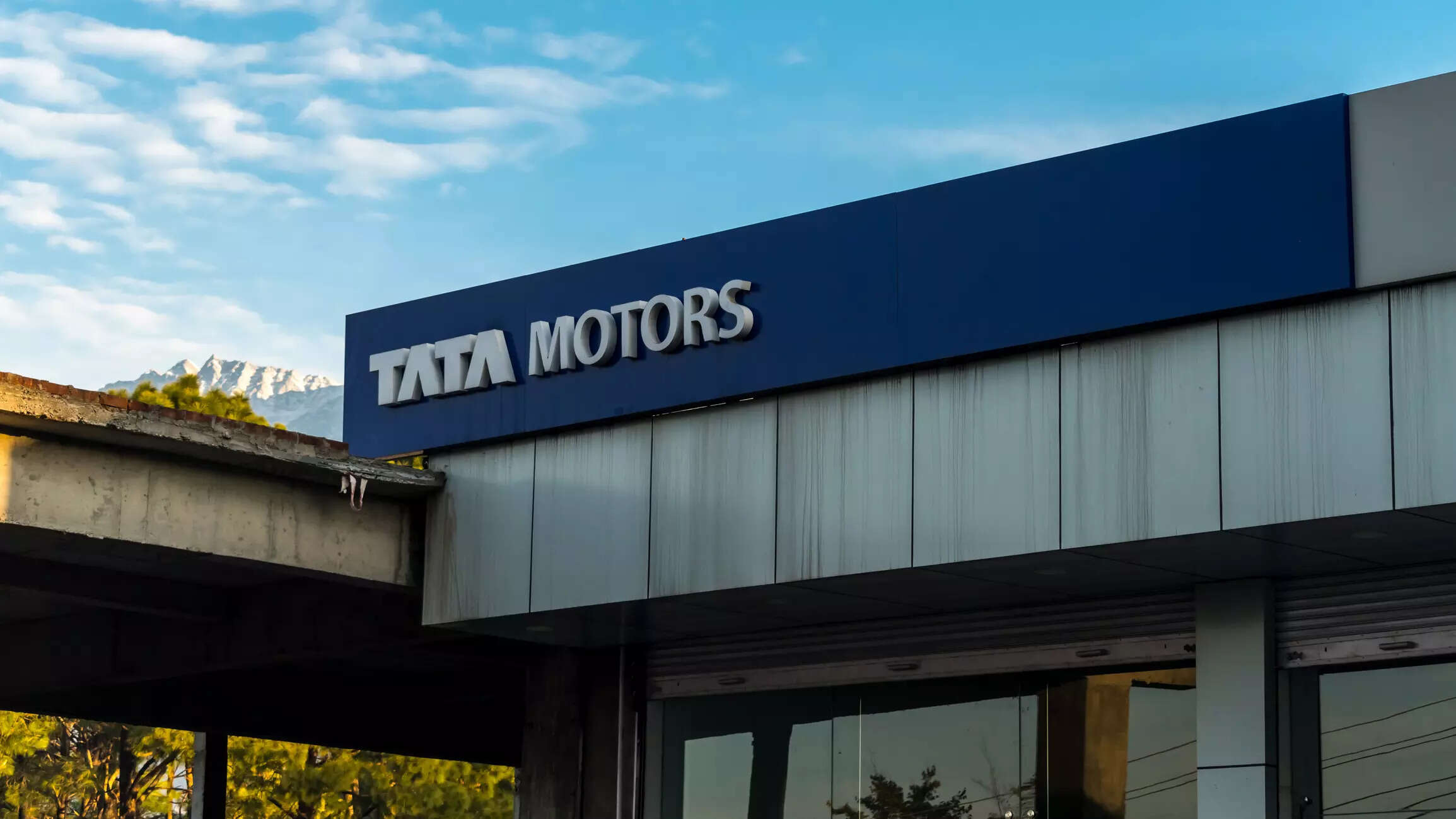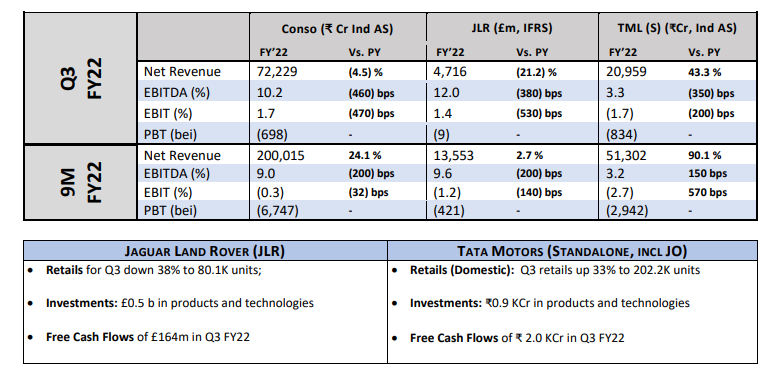
The auto major’s consolidated revenue from operations stood at INR 72,229 crore, compared to INR 75,653 crore during the same period last year.
Its total expenses stood at INR 73,639 crore in Q3 FY22, as against INR 71,775 crore in Q3 FY21. The company reported consolidated EBITDA at 10.2%.
On a standalone basis, the auto major posted a loss of INR 175.85 crore as against INR 638.04 crore in the same quarter last year. Its revenue from operations stood at INR 12,352.78 crore, compared to INR 9,635.78 crore a year ago.
The India operations of the company showed revenue improvement compared to Q3 a year ago. However, commodity inflation. “PV business continued its turnaround journey and strengthened its double-digit market share with highest sales in any calendar year since inception. EV sales witnessed a new peak of 5,592 units in Q3 FY22,” the company said.
Girish Wagh, executive director, Tata Motors, said, “The auto industry continued to witness rising demand in most segments even as the supply of semiconductors remained restricted resulting in adverse impact on production. We continue to increase market share in every segment of commercial vehicles and set several new milestones in passenger vehicles with decade high sales for both the quarter as well as the calendar year 2021. We also recorded the highest ever EV sales during the quarter and sold 10,000 EVs in 9MFY22, crossing new milestones.”
“At the time of publishing results, we have operationalized two subsidiaries, Tata Motors Passenger Vehicles Ltd. focusing on passenger vehicles powered by IC engines, and Tata Passenger Electric Mobility Limited to accelerate the development of the passenger EV business and its enabling ecosystem. Looking ahead, we expect the demand for commercial, passenger and electric vehicles to sustain even as concerns related to supply of semiconductors, high input costs and rising instances of covid keep the overall situation fluid. We will remain agile, address supply bottlenecks proactively, drive our savings program harder, take prudent pricing actions while continuing to make good progress in our future-fit initiatives of transforming customer experience digitally and strengthening our lead in sustainable mobility,” he said.
JLR sales remain constrained
Sales of the company’s UK-based subsidiary, Jaguar Land Rover (JLR), remains constrained by chip shortages with retail sales of 80,126 vehicles during Q3 FY22, down 37.6% over Q3 FY21, the company said.
“The chip supply situation is gradually improving with production volumes of 72,184 units up 41% over Q2 FY22 and wholesales of 69,182 units up 8% on Q2 FY22. For Q3, revenue was £4.7 billion, up 22% from Q2 FY22. EBIT margin was 1.4% and free cash flow was positive at £164 million in Q3 FY 22, demonstrating the progress JLR made in reducing the breakeven point in the business through mix optimisation and cost efficiencies,” it said.
Thierry Bolloré, chief executive officer, JLR, said, “Whilst semiconductor supplies have continued to constrain sales this quarter, we continue to see very strong demand for our products underlining the desirability of our vehicles. The global order book is at record levels and has grown to 30,000 units for the New Range Rover even before deliveries start this quarter.”
“We continue to execute our Reimagine strategy to realise the full potential of the business and create the next generation of the most desirable luxury vehicles for the most discerning of customers,” he said.
Going forward, Tata Motors said the demand remains strong despite near-term concerns from Omicron spread. The semiconductor supply situation is improving gradually whilst inflation worries persist. Over the past two years, the resilience of the business has improved, and it is now intrinsically stronger. With concerted actions in place to address the near-term supply and cost challenges, we expect performance to improve further in Q4 FY22 and beyond.
Also Read:


















